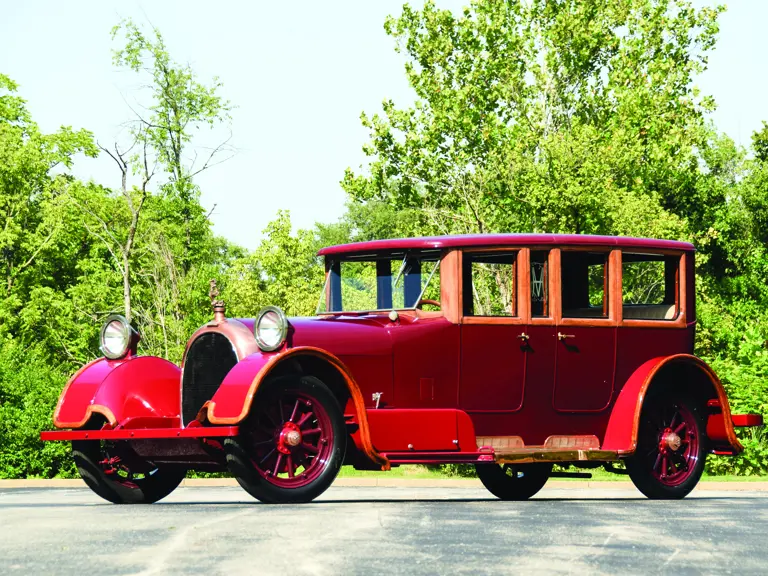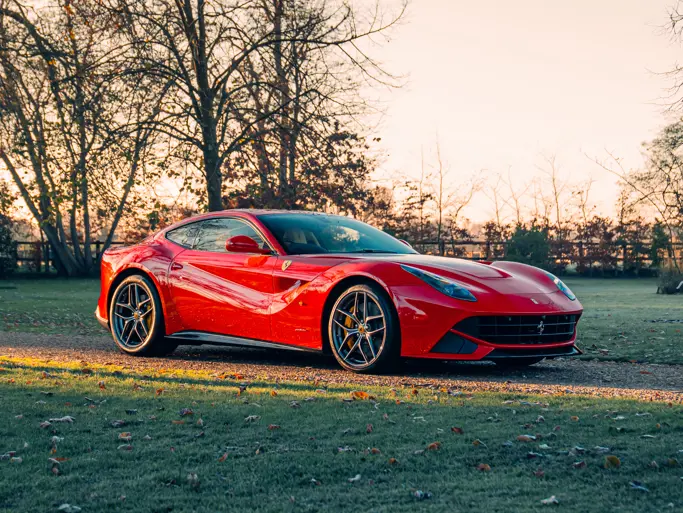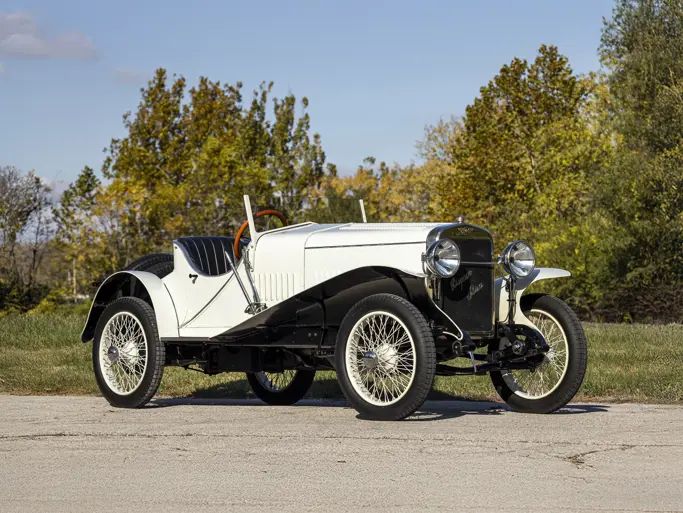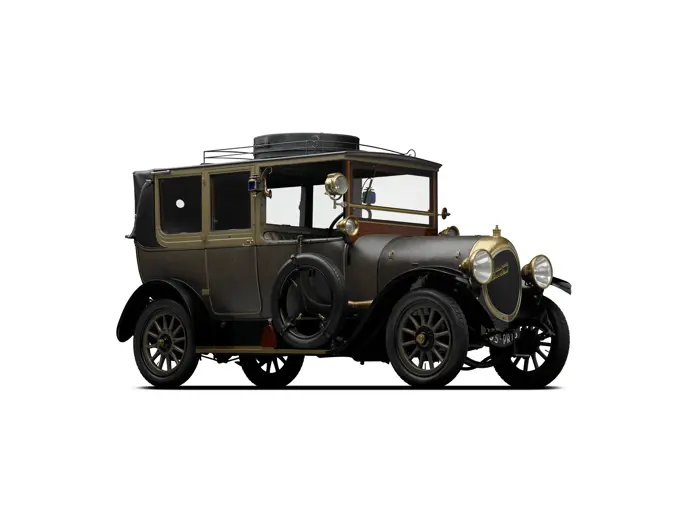
1921 Heine-Velox V-12
{{lr.item.text}}
$175,000 - $200,000 USD | Not Sold
{{bidding.lot.reserveStatusFormatted}}
- 115-hp V-12 engine
- Manual transmission
- Believed to be one of only two left (four originally built)
- At one point part of the renowned Blackhawk Collection
- Displayed in the Shanghai Automobile Museum from 2006-2015
- Cast brass running boards and a massive polished copper radiator
- Crafted wood wheel arches and window frames
- Ornate mascot
- Four-wheel hydraulic brakes
- Luggage racks and front fender storage compartments
The annals of automotive history are rich with fascinating and eccentric characters. For every Henry Ford or Enzo Ferrari, we have dozens of other bit players who may only be a footnote in the larger history, yet when we dig deeper, are no less interesting or inspiring.
One such character is Gustav Heine, a German national who moved from his hometown of Vierkrug, in the north of Germany, to San Francisco in the late 1800s. Shortly after his arrival in California, Heine began working for the Bruenn Piano Company as an apprentice, sweeping floors and helping the skilled workers in the shop. He was a bright young man and a fast learner, rising through the ranks to become a piano tuner and eventually, a partner in the business. In spite of his success in the company, all accounts point to the relationship between Heine and his boss Bruenn being a fiery one where the two often clashed – sometimes rather dramatically. While the details are not clear, Heine was involved in a literal battle with Bruenn over control of the business. The disagreement devolved into a duel involving piano tuning hammers which left Gustav Heine with a few extra scars but saw him take full control over the Bruenn Piano Company.
Newly renamed the Heine Piano Company, Gustav Heine became very successful and in the early 1900s he branched out into the brave new world of the Automobile. In 1903 he opened one of the first Ford dealerships on the West Coast. He built a handful of his own cars (some accounts say just three) between 1904 and 1906 but the 1906 San Francisco earthquake destroyed his workshops and put a stop to his automotive aspirations for the time being. After rebuilding his business, Heine did not return to his automobile aspirations until 1921 when he purchased the Economy Steel Manufacturing Company and shortly thereafter unveiled the positively breathtaking Heine-Velox at the San Francisco auto show. At a time when a Rolls Royce Silver Ghost cost just under $10,000, Gustav Heine’s automobile came in at a staggering $25,000. It is believed that just four were constructed – three closed cars and one Victoria Convertible – and, rather unsurprisingly, none of them found buyers. At some point, the cars were delivered to a dealer for display, yet they mysteriously disappeared and only two (one Limousine and the sole Victoria) have resurfaced in restored condition.
The example here is believed to be the only limousine known in fully restored condition. It is a truly remarkable and one of a kind automobile. Visually imposing, it sits dramatically low thanks to bodywork being cleverly mounted to the sides of the chassis. This effectively lowered the center of gravity and allowed for easy ingress/egress to the passenger compartment while contributing to the Heine-Velox’s low slung appearance. Storage compartments are built into the front fenders, as are luggage racks on the rear bumper area. Dual rear mounted spares are fitted, and the large headlights mounted atop the fenders give a very distinct appearance. Bright work is limited to cast brass running boards and a massive polished copper radiator, topped with a spectacularly ornate mascot. One of the most distinct features of the body is the wheel arches and window frames which are trimmed in beautifully crafted wood –steam bent around the arches - no doubt an influence from Gustav Heine’s piano making experience.
The exquisitely restored interior is highlighted by the distinct driver’s compartment which featured a dash that was canted forward at 45-degrees, which afforded greater driver comfort, making the array of Stewart instruments easier to read on the move. The angled windscreen also helped to reduce glare and driver fatigue. As one would expect of a car that cost two-and-a-half times as much as a Rolls Royce, the passenger compartment is stunning and elegant, with gorgeous upholstery, a microphone for delivering commands to the driver, divider window and beautiful detailing.
Power for the Heine-Velox comes from a 115-hp V-12 engine which was originally supplied by Weidley Motors of Indianapolis. George Weidley was a clever engineer who designed a number of engines for racing, agriculture and aeronautical uses. As powerful as a contemporary Duesenberg, the Weidley V-12 delivers power and prestige to the Heine-Velox. As part of the meticulous restoration, the engine was fully rebuilt, balanced and blueprinted to ensure smooth, effortless operation. Gustav Heine seemed to take safety seriously as the massive limousine is fitted with four-wheel hydraulic brakes.
The sheer scale and detail on this amazing automobile make it virtually impossible to describe in such a short space. It presents in beautifully restored condition throughout and has been part of the renowned Blackhawk Collection, as well as being displayed in the Shanghai Automobile Museum from 2006-2015. This automobile is a work of art with fascinating history that would surely be welcome at any major event the world over.


 | Auburn, Indiana
| Auburn, Indiana


